On September 5th, 2024, Kailash Jain (KJ) achieved a feat that few can even imagine: he completed the Silk Route Ultra Marathon in Ladakh, one of the world’s highest and most challenging ultra marathons. Running a staggering 122 kilometers through some of the harshest terrains on Earth, KJ’s journey was an inspiring tale of determination, endurance, and an unbreakable will.
Here’s a deeper look at his experience, the challenges he faced, and the lessons his story offers to anyone striving for greatness in life or on the racecourse.
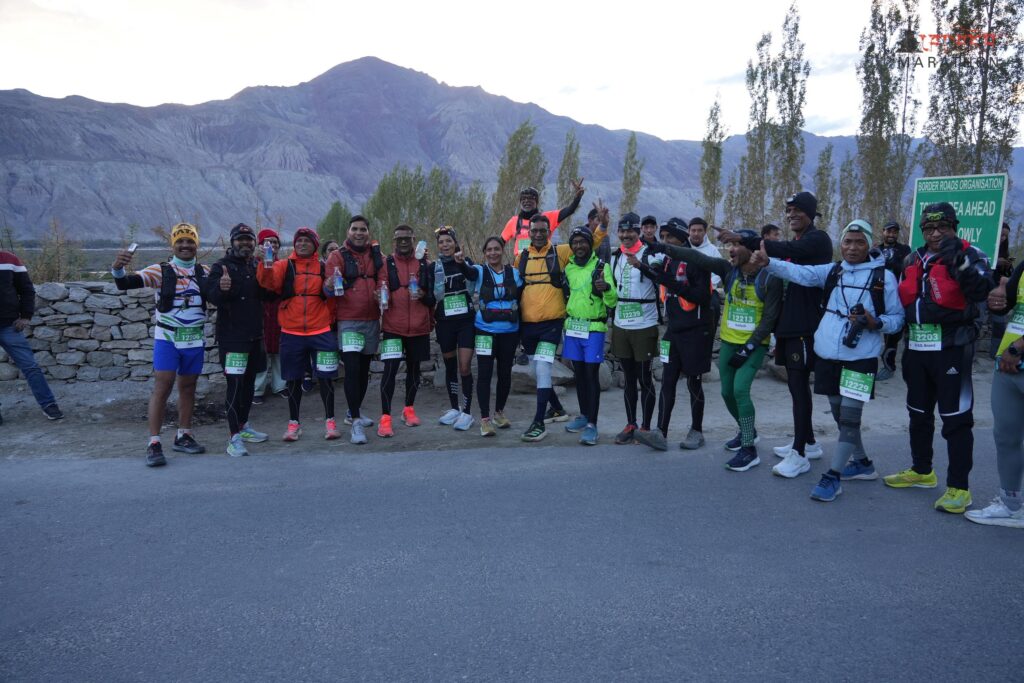
The Silk Route Ultra Marathon: What Makes It So Tough?
The Silk Route Ultra Marathon is no ordinary race. It is a grueling test of human endurance that pushes even the most seasoned athletes to their limits. Held in the high-altitude region of Ladakh, this marathon covers 122 kilometers of unforgiving terrain, where runners battle not only the distance but also the extreme conditions.
Key Challenges of the Silk Route Ultra Marathon:
- Altitude: The race takes place at altitudes between 3,500 and 5,000 meters (11,500 to 16,500 feet), where the air is thin, and oxygen levels are significantly lower. This leads to quicker exhaustion and altitude sickness for many participants.
- Rugged Terrain: Ladakh’s landscape is as beautiful as it is brutal, with rocky paths, steep ascents, and sharp descents. Each step is a challenge, as runners have to navigate through uneven and treacherous trails.
- Extreme Weather Conditions: The race covers both day and night, with temperatures varying from scorching heat during the day to freezing cold at night. Runners must be prepared for rapid weather changes and unpredictable elements.
This marathon isn’t just about running; it’s about survival and pushing the human body and mind to the very edge.
KJ’s Midnight Start: Running Through the Dark
For KJ, the race began in a surreal setting—under the stars in the dead of night. The first hours of his journey were spent in complete isolation, with nothing but the light from his headlamp cutting through the darkness. The silence was broken only by the rhythm of his own footsteps and breath, making this portion of the race as much a mental challenge as it was physical.
Running through the night, with only my headlamp for company, the isolation of those 10 hours in pitch-black darkness was something else.
For ultra runners, these solitary hours are crucial. Mental strength becomes just as important as physical endurance. Running in the dark requires focus, patience, and the ability to keep pushing forward despite the monotony and exhaustion. It’s easy to give in to fatigue, but KJ knew that this was where true champions were made—in the darkest hours before dawn.

A Critical Obstacle: Hydration Crisis at 50km
At the 50km mark, disaster struck. KJ’s hydration backpack malfunctioned, leaving him without proper water supply in the middle of the race. In ultra-marathons, especially at high altitudes, hydration is key to survival. Without sufficient water, dehydration can set in quickly, leading to cramps, dizziness, and in severe cases, collapse.
But like any experienced ultra-runner, KJ adapted on the fly. He managed to salvage a small 250ml bottle to carry water, refilling it every five kilometers at the sparse hydration points. This improvisation came at a cost—he had to battle dehydration for the rest of the race, pushing his body harder and harder to keep going as the kilometers wore on.
Every five kilometers, I was running and refilling this little bottle leading to severe dehydration. But as they say, ‘When life gives you lemons, squeeze the heck out of them!
The Physiology of Ultra-Running: Understanding the Body’s Limits
Ultra-running is one of the most demanding endurance sports. The toll it takes on the body goes far beyond a typical marathon. Here are some of the key physical and physiological challenges that runners like KJ face in ultra-marathons:
- Dehydration: Even mild dehydration can lead to reduced performance. In ultra-marathons, runners lose a significant amount of fluids through sweat, and staying hydrated is crucial for maintaining energy and avoiding heatstroke or muscle cramps.
- Muscle Breakdown: Over time, the body begins to break down muscle tissue for energy, especially after glycogen stores (the body’s primary energy source) are depleted. This process, known as rhabdomyolysis, can cause extreme fatigue and soreness.
- Mental Fatigue: Running for nearly 20 hours straight requires immense mental fortitude. The body wants to stop, but the mind must stay strong to push through exhaustion, pain, and the urge to quit.
In KJ’s case, the dehydration and cramps that set in around the 80km mark were his body’s way of telling him it had reached its limits. But ultra-runners know one thing well: the mind is often more powerful than the body.
The Power of Mental Endurance: Pushing Through the Pain
By the time KJ reached 80 kilometers, his body was screaming for him to stop. Cramps had taken over, and dehydration had sapped his energy. This is the point in an ultra-marathon where many runners are forced to quit, but for KJ, this was the moment to dig deeper.
Pain is temporary, victory is forever.
Ultra-running is a constant mental battle. When your body gives up, your mind needs to step in. KJ pushed through the pain, reminding himself that every step forward was a step closer to his goal. It wasn’t about finishing fast—it was about finishing, period.
Crossing the Finish Line: 19 Hours and 44 Minutes Later
After 19 hours and 44 minutes, KJ crossed the finish line—victorious, exhausted, but triumphant. The gold medal he earned wasn’t just a symbol of first place in his category; it was a reflection of every ounce of determination, grit, and willpower he had poured into those 122 kilometers.
For KJ, this race wasn’t just a personal victory. It was a reminder of the power of preparation, resilience, and the human spirit. He credited his success to the support of his family, friends, and the guidance of his Coach Kay and Dr. Khushboo (Nutri Diet), who kept him physically and mentally sharp for the challenge.

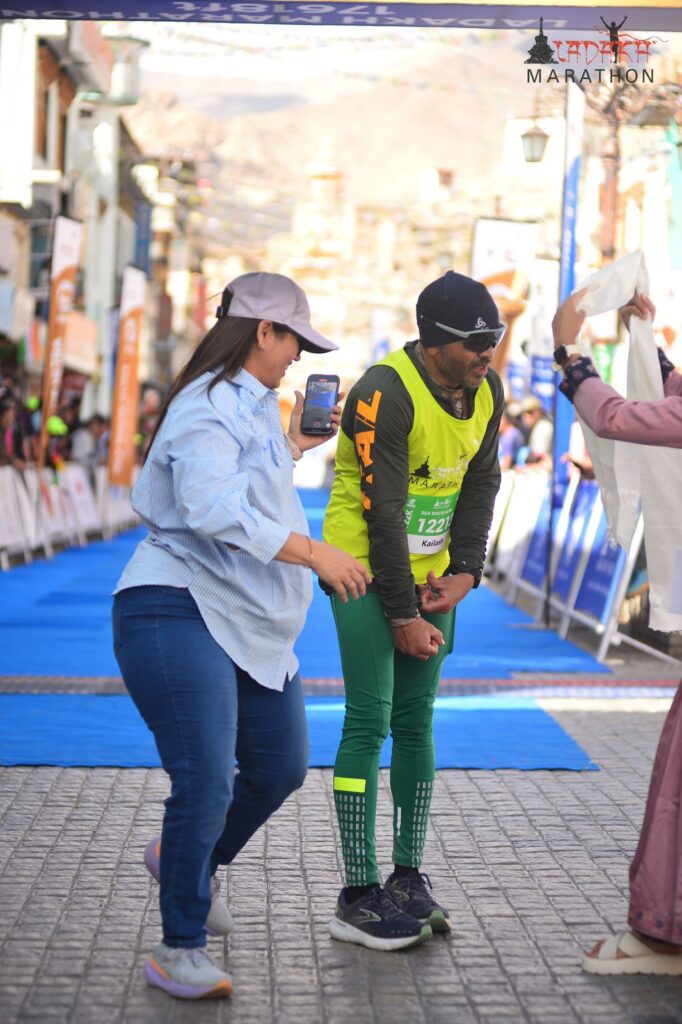
Lessons Learned: How You Can Tackle Your Own Ultra Marathon
KJ’s journey is full of lessons for anyone looking to take on an ultra-marathon, or even a big challenge in life. Here are some key takeaways from his experience:
- Preparation is Everything: Train not just for the physical distance but for the conditions you’ll face. If your race is at high altitude, spend time acclimatizing. If it’s through rough terrain, practice running on trails.
- Adaptability is Key: In ultra-marathons, things rarely go according to plan. KJ’s hydration crisis could have been a disaster, but his ability to adapt and improvise kept him in the race. Expect the unexpected and be ready to pivot when things go wrong.
- Hydration and Nutrition are Crucial: Running 122 kilometers requires more than just physical strength. You need to keep your body fueled with the right hydration and nutrients. Work with a nutritionist to craft a sustainable diet plan that meets your race needs.
- Mental Toughness Wins Races: The body will get tired. The legs will ache. But if your mind stays strong, you can push through anything. Practice mental toughness through mindfulness, visualization, and positive self-talk.
- Never Give Up: Ultra-marathons, like life, are about perseverance. As KJ proved, victory is in the will to keep going when everything else tells you to stop.
Final Thoughts: The Legacy of KJ’s Achievement
KJ’s completion of the Silk Route Ultra Marathon is more than a personal triumph—it’s an inspiration to everyone who dreams big and works tirelessly to achieve their goals. His story proves that with the right mindset, even the toughest challenges can be conquered.
Whether you’re a seasoned runner or someone facing your own personal challenges, remember KJ’s words: If you can dream it, you can do it. Believe in yourself, prepare for the worst, and push through the pain. On the other side, there’s victory waiting for you.
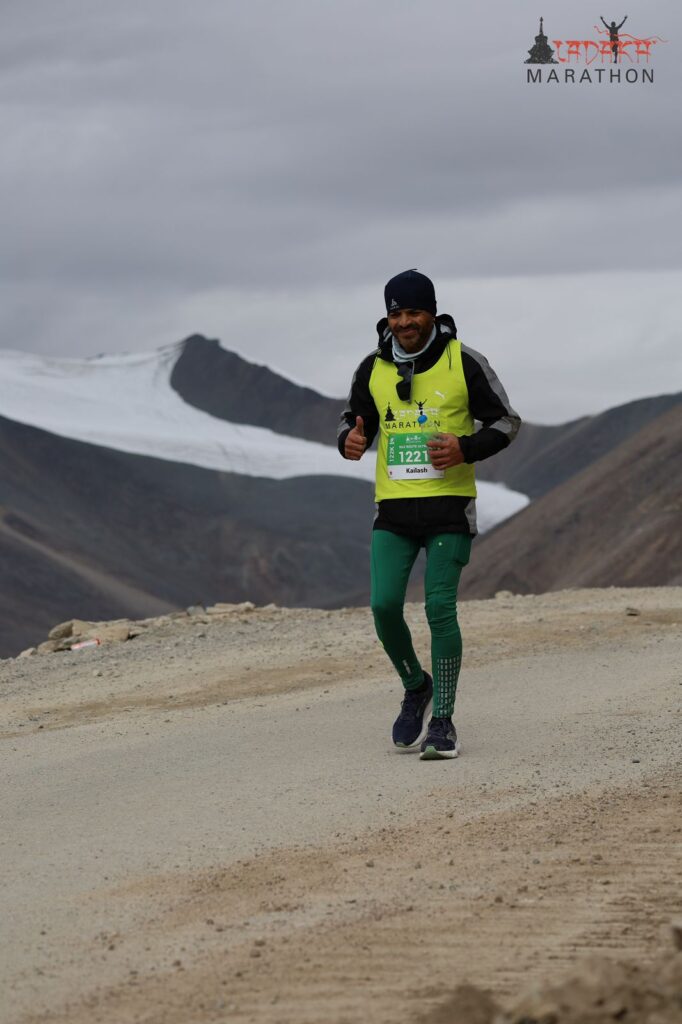
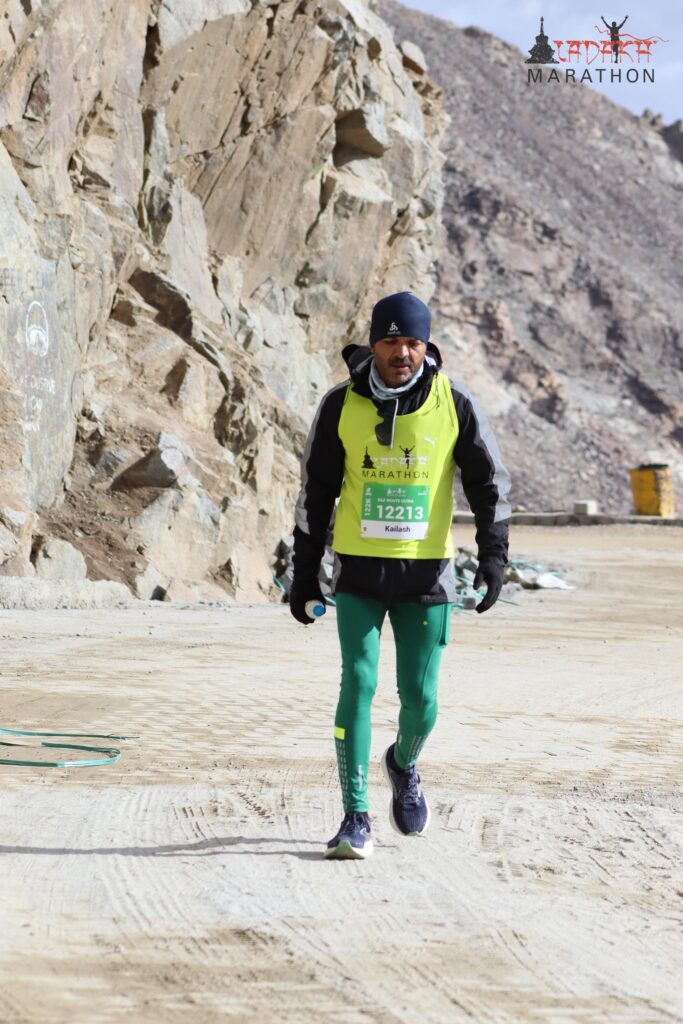
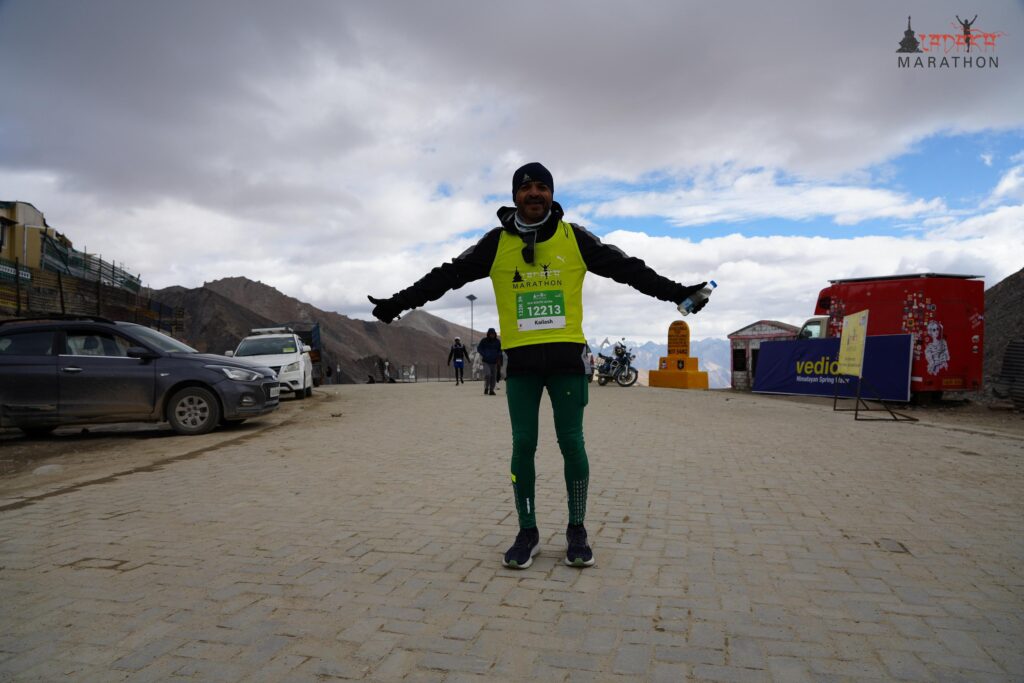
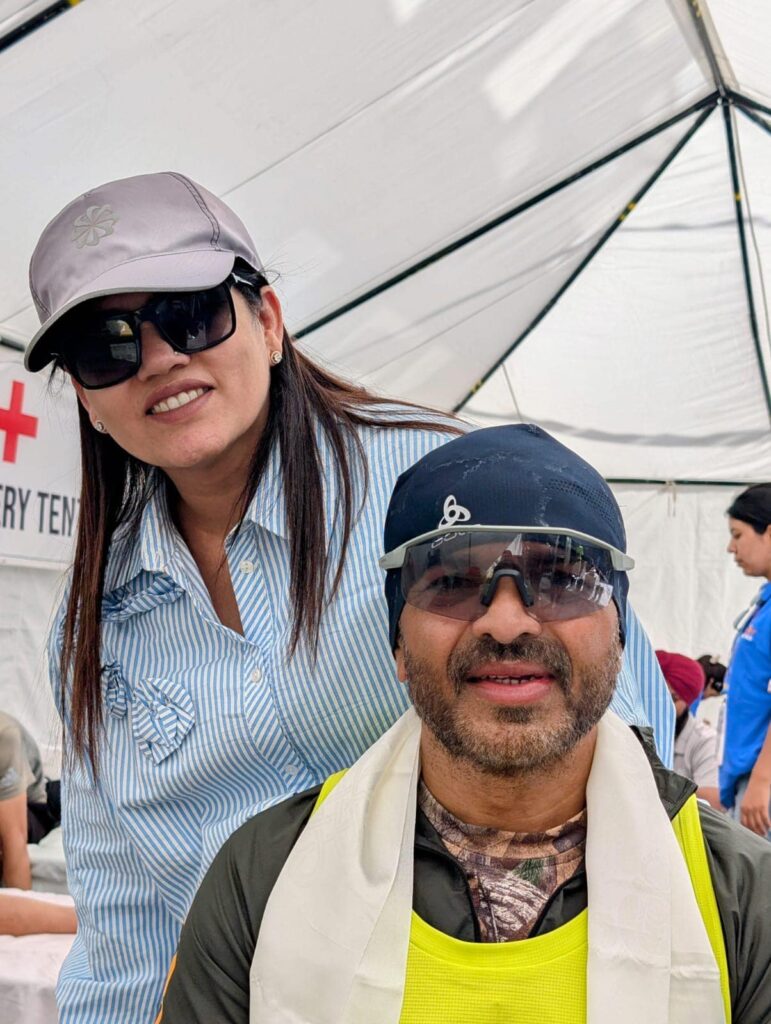
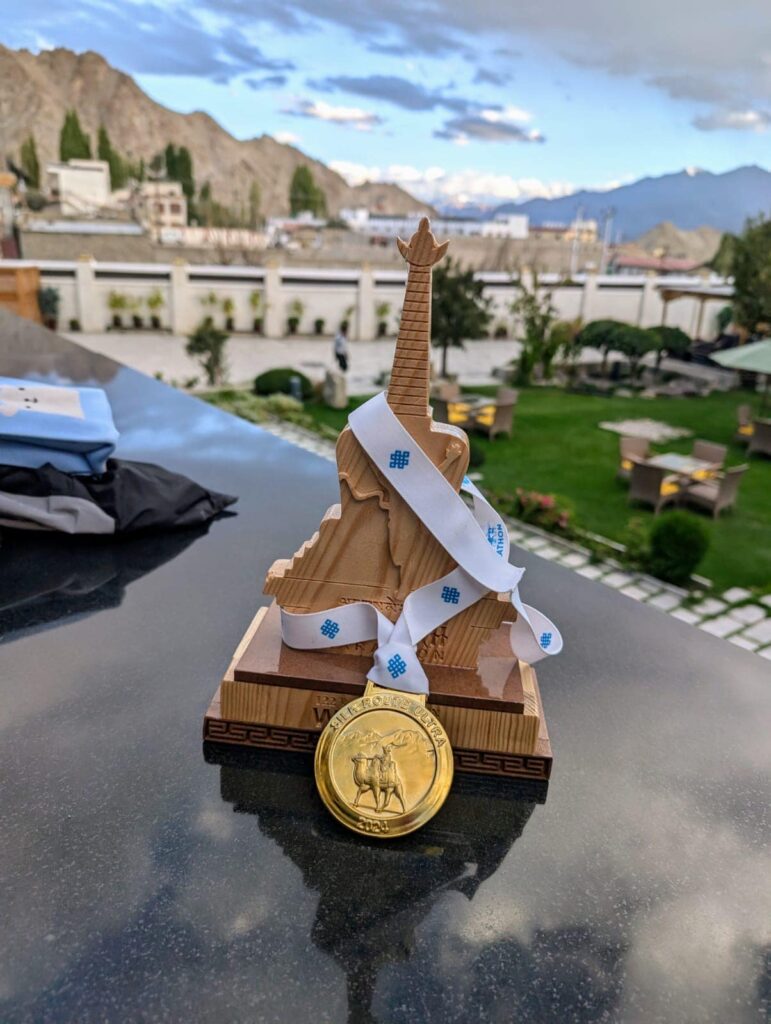

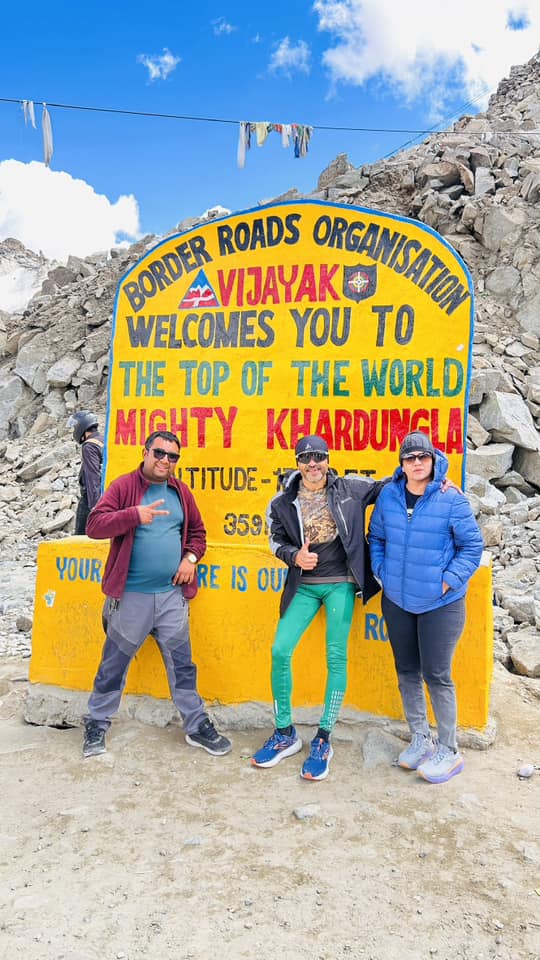
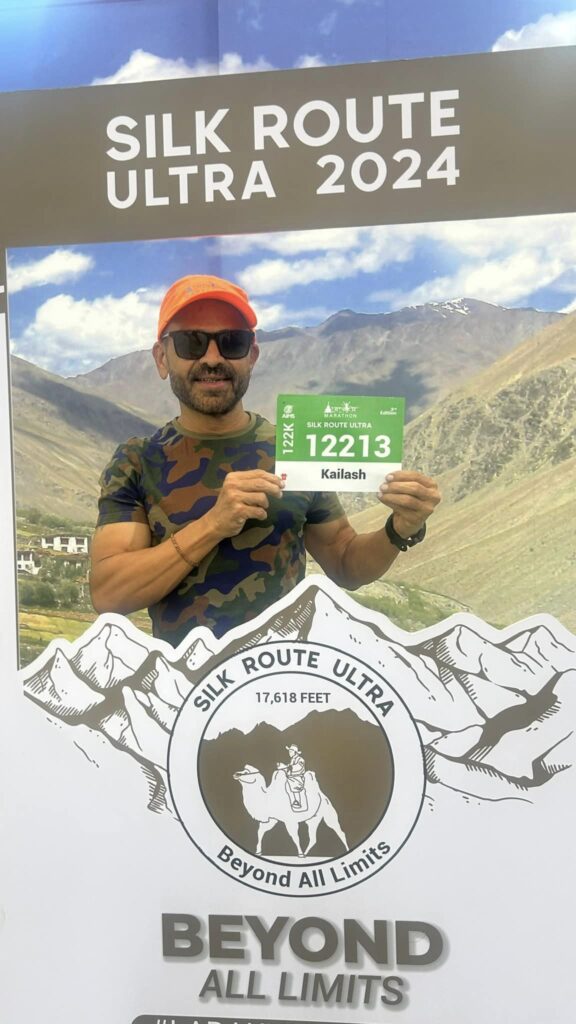
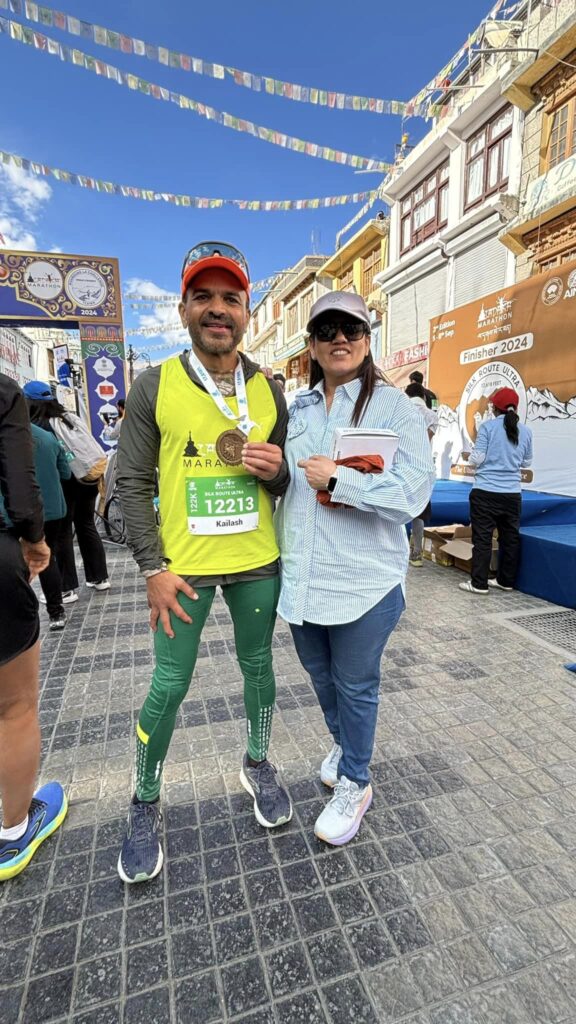

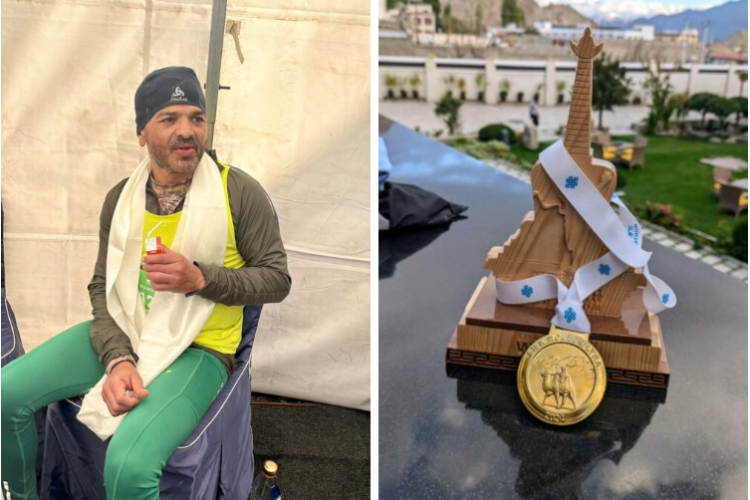
One thought to “From Darkness to Victory: Kailash Jain’s Epic 122km Silk Route Ultra Marathon Journey”
I love this man.